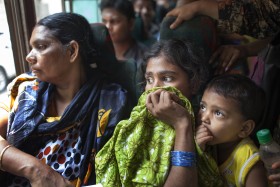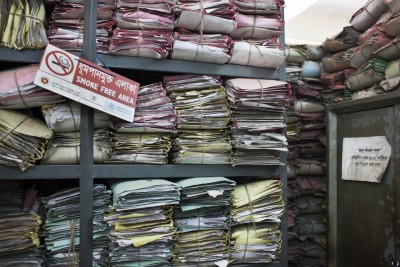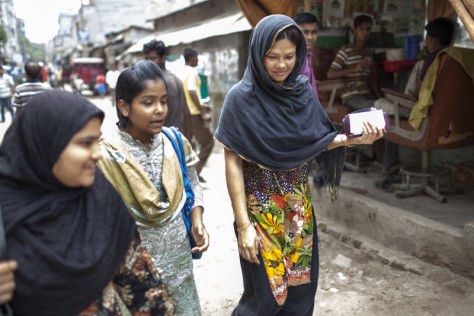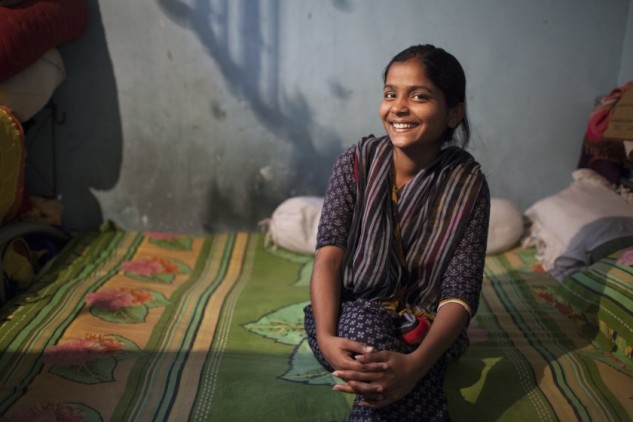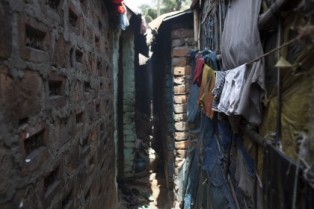In 2014 the American film-maker and writer Bremen Donovan travelled to Bangladesh to photograph the work of Namati and its partner, the Council on Minorities. We work with the Urdu-speaking minority who struggle to secure citizenship.
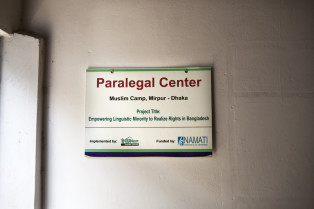
Namati and its partner Council on Minorities have opened paralegal offices in five camps across Bangladesh.

Nahid Parvin, 20, is a paralegal working for the Urdu-speaking community in Dhaka.
Parvin has basic law and mediation training. She works as a grassroots advocate, helping people apply for identity documents. Parvin suffered discrimination growing up: ‘Teachers would say, “Oh, you’re from the camps, you killed our forefathers in ‘71.” I didn’t say anything,’ she says. ‘But I cried all the time’
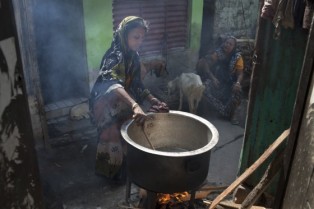
Mymensingh camp, Dhaka. Urdu speakers have suffered discrimination and extreme poverty since the country’s war of liberation. Despite a law introduced in 2008 that guarantees citizenship for Bihari refugees, they face serious obstacles to obtaining citizenship documents such as passports and birth certificates.
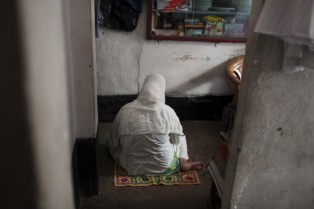
Many Biharis are increasingly able to pass as mainstream Bangladeshis. This gives them access to housing and services such as education – and a better chance of acquiring citizenship documents. But for Urdu speakers, ‘passing’ in order to get the basic rights granted by law means abandoning their culture.
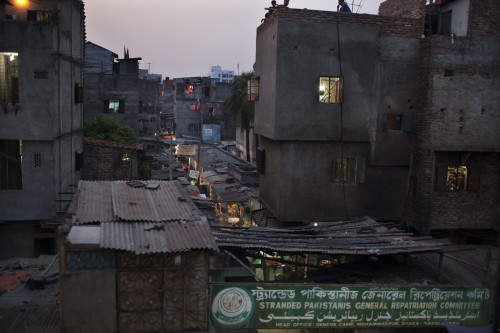
Night time in Geneva Camp Dhaka. Many ancestors of the Urdu-speaking minority came from Bihar, India, during the partition in 1947. The camps’ residents are referred to as Bihari, which is a loaded term in Bangladesh. Some trace their ancestry back not to Bihar, but to other regions in India and present-day Pakistan



